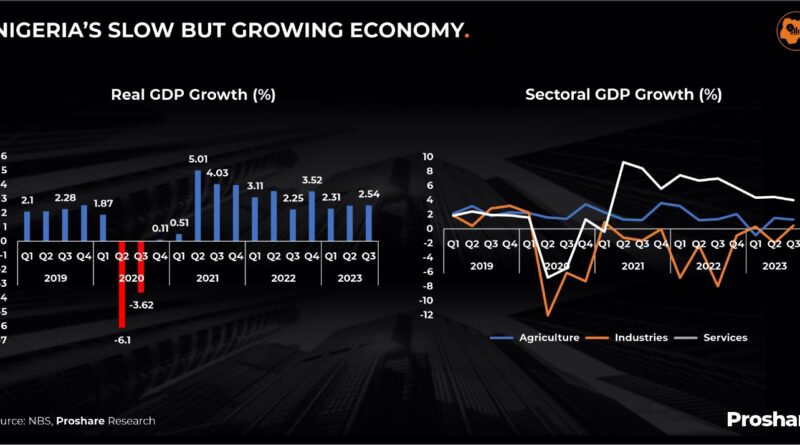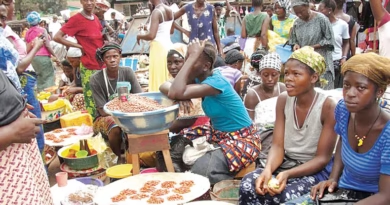Experts Highlight Key Actions to Reduce Inflation in Nigeria
Economic experts believe that stronger efforts to implement policies aimed at increasing food production and addressing business challenges can stop rising inflation.
They explained that these measures would help reduce the cost of goods and services. Reacting to the latest inflation report, the experts suggested the government coordinate fiscal and monetary policies and ensure they work together to improve living conditions for citizens.
They emphasised that the government must take these actions even though inflation seems to be slowing down.
The National Bureau of Statistics (NBS) reported yesterday on the December 2024 Consumer Price Index (CPI), noting that Nigeria’s headline inflation increased slightly from 34.60% in November 2024 to 34.80% in December 2024.
However, food inflation dropped slightly, decreasing from 39.93% in November to 39.84% in December.
The latest inflation rate is lower than analysts expected, indicating a slower rise in prices.
Month-on-month, headline inflation fell to 2.44% in December, compared to 2.64% in November. Similarly, food inflation dropped to 2.66% in December, down from 2.98% in the previous month.
The National Bureau of Statistics (NBS) linked the inflation pressure to higher demand for goods and services during the December festive season.
Experts believe inflation could continue to slow down in the coming months but urged the government to adjust its policies and address existing gaps.
Dr. Muda Yusuf, Managing Director of the Centre for the Promotion of Private Enterprises (CPPE), highlighted ongoing inflationary pressures as a persistent challenge in Nigeria’s economy. However, he noted that the increase in December’s headline inflation was only slightly higher than November’s figures.
He explained that the 2025 inflation outlook appears positive, with expectations of slower inflation due to reduced exchange rate volatility, better foreign reserves, easing geopolitical tensions, and a strong base effect.
To further reduce inflation, Yusuf advised the Central Bank of Nigeria (CBN) to halt its policy of raising interest rates, which increases business costs. He also urged the government to address fiscal risks by cutting the fiscal deficit and slowing public debt growth.
Yusuf expressed concern over the National Assembly’s focus on generating revenue, criticising its practice of setting unrealistic revenue targets for ministries, departments, and agencies (MDAs).
He went further. “Excessive pressure on MDAs to boost revenue and increase internally generated revenue (IGR) has profound inflationary implications.
“Reality is that such pressures are invariably transmitted to investors in the form of higher fees, levies, penalties, import duties, and regulatory charges, among others.”
“These outcomes are in conflict with government aspirations to boost investment, curb inflation, and create jobs.
He lastly added “Revenue targets should be based on empirical studies, absorptive capacity of the economy and due consideration of the wider economic implications. Obsession with revenue would hurt investments, worsen inflationary pressures, aggravate poverty, and impede economic growth. There should be a careful balancing act between revenue growth aspirations, the desire to boost investment and commitment to moderate inflation.”
Also, analysts at Financial Derivatives Company (FDC) observed that limited income is driving customer resistance, which is negatively affecting the productive sector.
One of the analysts highlighted: “Interestingly, early signs of high customer resistance are beginning to emerge as consumers grapple with income constraints.
“Retailers report slower demand for goods and services, underscoring the growing disconnect between rising prices and stagnant incomes.
“This indicates that external factors, such as cost-push inflation, drive the price increase, rather than strong consumer demand.”
FDC explained that food demand and prices will drop in January due to the fact that families are still struggling to pay school fees.
According to it, the possibility of a pause in interest rate hikes rests on the January inflation rate.
It stated, “The Monetary Policy Committee (MPC) has rescheduled its meeting—originally slated for January 27 to 28, 2025, to February 17 to 18. This postponement allows them time to receive the January inflation numbers, which will influence their decision.
See Also: BCAN Backs CBN’s Penalty On Banks For ATM Cash Shortages
“If January inflation moderates, they will likely hold rates. In so doing, the CBN will be signalling to markets that interest rates have reached their threshold.”
Also, analysts at Cordros Capital Group predict that inflation may ease soon after rising for four consecutive months.
They expect food inflation to slow in January 2025 due to smaller price increases for imported food and lower consumer demand, which could offset the impact of reduced agricultural output as the harvest season ends.
Similarly, analysts at Cardinalstone foresee a slight drop in food inflation in January, supported by leftover stocks from the main harvest. However, they believe core inflation will remain high due to likely increases in energy prices.
SCM Capital noted that the upcoming rebasing of the inflation basket might provide a more accurate inflation measure by giving less weight to food prices and more to transport and hospitality costs.
The National Bureau of Statistics (NBS) reported that the drop in food inflation in December was due to falling prices of items like local beer, fruit juice, rice, millet, maize flour, and yam.
State-level data showed the highest inflation in Bauchi (44.06%), Sokoto (42.43%), and Kebbi (41.47%), and the lowest in Delta (29.23%) and Imo (29.99%).
For food inflation in December, Sokoto (57.47%), Zamfara (46.39%), and Edo (46.32%) recorded the highest rates, while Ogun (34.24%), Rivers (35.43%), and Kwara (35.58%) had the lowest.
Content Credit| Igbakuma Rita Doom
Picture Credit | https://proshare.co/




